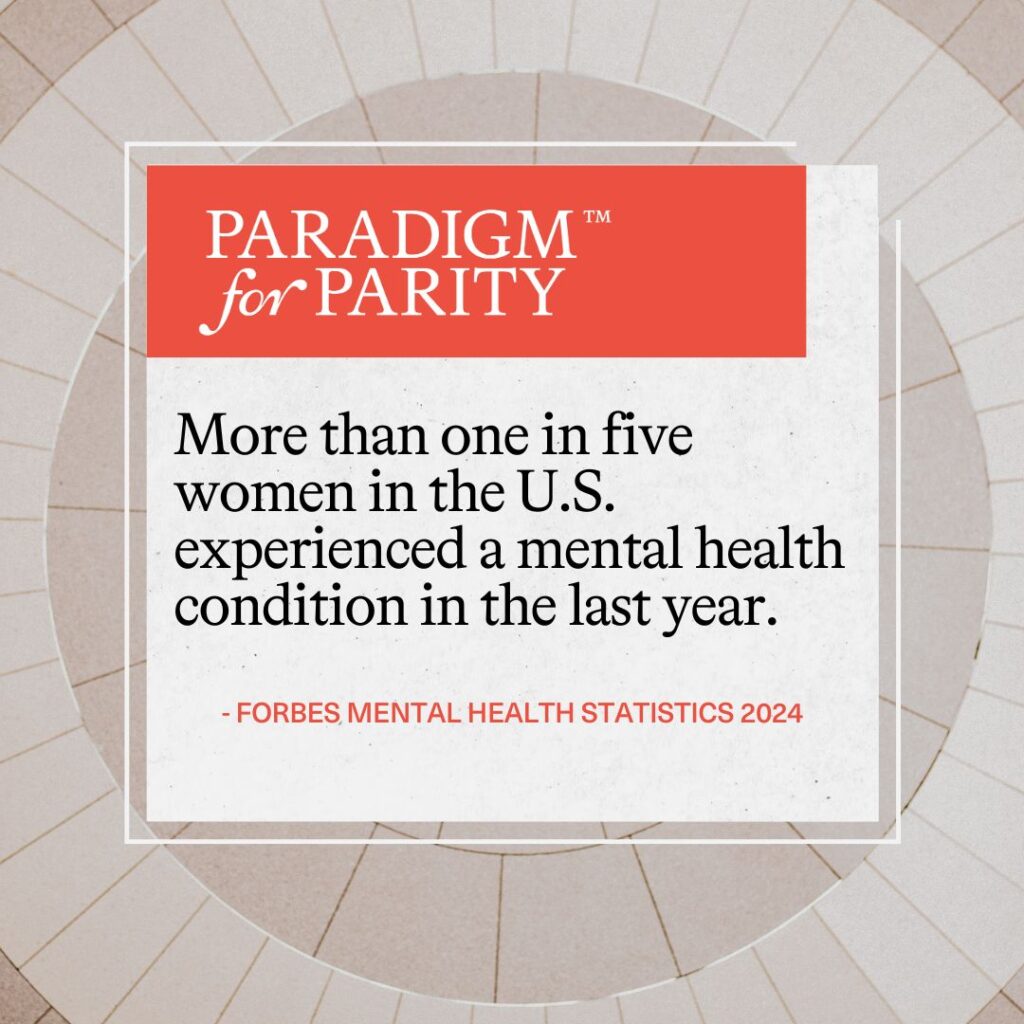Like many other self-proclaimed “Swifties,” I dove headfirst into Taylor Swift’s new album, The Tortured Poets Department, absorbing the heartfelt lyrics and catchy melodies. At its core, “I Can Do It With a Broken Heart” tells the heartbreaking story of a pop star navigating a painful breakup while performing for millions of adoring fans, as if nothing is amiss. As I drive around in my car, emotionally singing along with the lyrics, I start to wonder: Is it the catchy hook or the relatable message that pulls me in?
It turns out, I’m not alone. I was slightly alarmed but deeply comforted when I saw how many other women connected with these devastating lyrics—the feeling of having to do it all, put on a brave face, and keep going despite the inner struggles. Taylor Swift’s lyrics resonate on a profound level, capturing the essence of the silent battles many of us face at work every day.
A recent Forbes article highlighted that :
These statistics only begin to scratch the surface. When we dive into communities of women such as women of color or the LGBTQ+ community, the impact and effects are heightened.
It’s no wonder for many women, like Taylor Swift, “the pieces shatter as the crowd is chanting, ‘More.’”

The need for efforts around intentional support for women of varying backgrounds, races, and cultures when it comes to mental health care is critical.
The good news is that women are more likely to seek mental health services than men, and a recent Deloitte study found signs of improvements in how women viewed their mental health and burnout compared to a 2022 study. Yet many women continue to face barriers in seeking help, including high costs, time away from work or family, and lack of available care.
We can all do more to reduce the barriers and support the mental wellness of women. I’ve been fortunate myself to have been a part of organizations and companies that have done just that.
Flexible Work Arrangements like remote work, flexible hours, and job-sharing all help women balance life and reduce burnout. Benefits that meet the full range of women’s needs and support women in taking advantage of them, having access to counseling services, wellness initiatives, childcare support, and parental leave can help to proactively manage health. I’ll add that I’ve had the privilege of having an extremely supportive partner. All of these things make my ability to bring my best self to my work a possibility.
Maybe what has most positively impacted my career journey is inclusive leadership, with opportunities for mentorship that fostered an environment where I’ve felt valued and empowered. Communication and feedback processes were central to these organizations. Allowing employees to share concerns and receive constructive feedback, formal or informal, regular check-ins and open-door policies can help identify and address stress points early. This also creates opportunities for recognition. Acknowledging contributions boosts morale and motivation..
The stress isn’t going away, but maintaining awareness for mental well being and leveraging supportive strategies can help women keep “winning even during the moments when we’re not grinning.”
by Nadine Bullock-Pottinga, CEO, Paradigm For Parity. Like many other self-proclaimed “Swifties,” I dove headfirst into Taylor Swift’s new album, The Tortured Poets Department, absorbing the heartfelt lyrics and catchy melodies. At its core, “I Can Do It With a Broken Heart” tells the heartbreaking story of a pop star navigating a painful breakup while performing for millions of adoring fans, as if nothing is amiss. As I drive around in my car, emotionally singing along with the lyrics, I start to wonder: Is it the catchy hook or the relatable message that pulls me in? It turns out, I’m not alone. I was slightly alarmed but deeply comforted when I saw how many other women connected with these devastating lyrics—the feeling of having to do it all, put on a brave face, and keep going despite the inner struggles. Taylor Swift’s lyrics resonate on a profound level, capturing the essence of the silent battles many of us face at work every day. A recent Forbes article highlighted that The prevalence of any mental illness was higher among women (27.2%) than men (18.1%) in 2021. In 2021, 51.7% of U.S. women received mental health services, compared to 40% of men. Women are diagnosed with serious mental health conditions at higher rates than men, 7% to 4% respectively. More than one in five women in the U.S. experienced a mental health condition in the last year. Certain mental health conditions, like depression and bipolar disorder, affect more women than men. These statistics only begin to scratch the surface. When we dive into communities of women such as women of color or the LGBTQ+ community, the impact and effects are heightened. A Hopkins Medicine report found that African American women are only half as likely to seek help as their Caucasian counterparts. Among Lean In’s key findings is that LGBTQ+ women are 5x more likely to hide aspects of their personal lives and more than 2.5x more likely to worry about appearing professional than women It’s no wonder for many women, like Taylor Swift, “the pieces shatter as the crowd is chanting